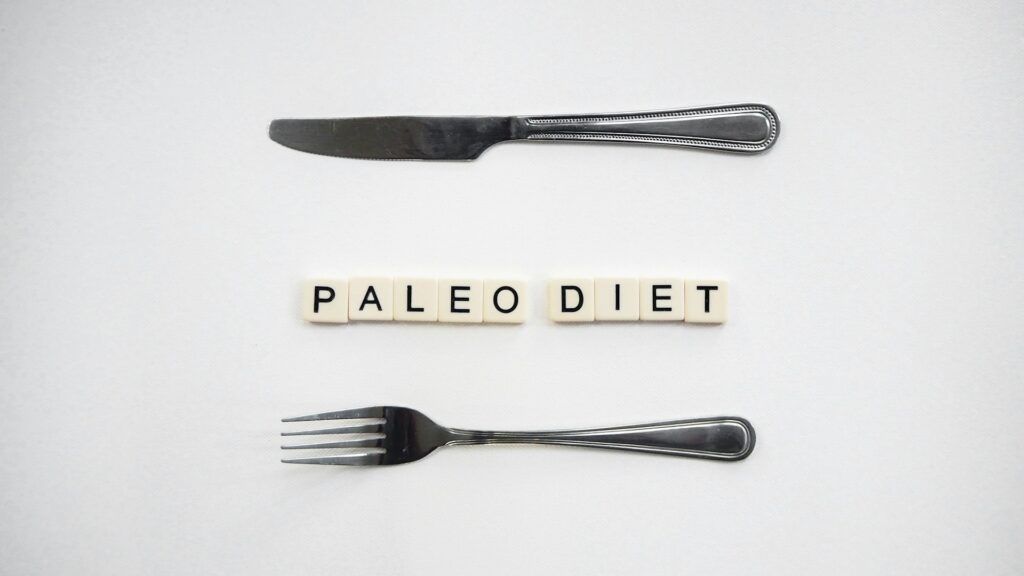
Multiple sclerosis (MS) is a common neurological condition affecting over two million people worldwide. It’s an autoimmune condition that causes debilitating symptoms such as fatigue, muscle spasticity, and movement difficulties.
Get Copay Assistance Now
There is currently no cure for multiple sclerosis. However, MS symptoms are manageable by following the appropriate treatment regimen and a balanced multiple sclerosis diet.
In this article, we will discuss what a healthy diet for multiple sclerosis looks like. We will list the foods you should eat and avoid and also examine different multiple sclerosis diet plans to help you choose the best option.
The Impact of Diet on MS
Did you know that MS is more common in Western countries? This epidemiological observation has led researchers to believe there is a connection between MS and dietary habits.
While nutrition cannot replace disease-modifying therapies for MS, a well-balanced multiple sclerosis diet may help with several factors, such as:
- Reduce flare-ups
- Improve the quality of life
- Slow down disease progression
- Manage and alleviate symptoms
By following a healthy diet for multiple sclerosis, you may be able to ease symptoms such as fatigue, inflammation, mood swings, bladder issues, and more. What foods should you include in this diet? Let’s find out.
Foods To Eat if You Have MS

There isn’t a single nutritional solution for multiple sclerosis. To manage symptoms effectively, you must include a combination of nutrients in your multiple sclerosis diet.
Here are some of the most MS-friendly foods you can eat.
Fruits and Vegetables
Fresh fruits and vegetables are in most multiple sclerosis diet plans. Their high fiber content can help with bowel problems, while their essential vitamins may lower disease activity.
Fruits and vegetables are also fantastic sources of antioxidants, which can help reduce inflammation throughout the body and might slow the disease from worsening.
Whole Grains
Whole grains, such as oats, rice, and quinoa, are another great source of fiber. They are also full of complex carbohydrates, which can provide energy to help combat fatigue.
Research shows that those who include whole grains in their multiple sclerosis diet have less severe symptoms and disability.
Protein
Lean protein sources, such as chicken, fish, legumes, and soy products, offer various benefits for managing MS symptoms. A healthy diet for multiple sclerosis that is high in protein will provide essential amino acids necessary for muscle maintenance and repair.
Fish is especially beneficial for MS patients because it’s high in anti-inflammatory omega-3 fatty acids and vitamin D, which can strengthen bones. Red meat can also be a good source of vitamin D. However, it’s best to consume it in moderation. Be sure to consult your healthcare provider to determine a safe amount of red meat for your diet.
Speak to a Specialist
About Copay AssistanceDairy Products
Your multiple sclerosis diet can also include dairy products. However, research on the effects of dairy products on MS is mixed.
Some suggest they might worsen MS symptoms, while others point to their high calcium and vitamin D content and their benefits for bone health and muscle repair.
If you decide to include dairy products in your multiple sclerosis diet plan, take note of your symptoms and talk to a healthcare provider if they worsen.
Healthy Fats
Healthy, unsaturated fats, like those found in avocados, nuts, seeds, olive oil, and oily fish, can be an excellent addition to your multiple sclerosis diet.
Studies show that these healthy fats possess anti-inflammatory properties and can protect the nerves from further damage. In addition, they can improve energy levels and reduce the risk of heart disease.
Probiotics and Prebiotics
A healthy diet for multiple sclerosis includes probiotic and prebiotic-rich foods.
Probiotics found in fermented foods, such as yogurt, kimchi, and kefir, can increase the levels of beneficial gut bacteria. Meanwhile, prebiotic fibers, such as those found in leeks, artichokes, garlic, and asparagus, can nourish these bacteria.
The actions of probiotics and prebiotics can help support gut health and improve MS symptoms by lowering inflammation and boosting immune response.
Foods to Avoid if You Have MS
You should limit certain foods in your multiple sclerosis diet to manage your symptoms better. Most of these food groups cause inflammation, so excluding them from your diet can help make living with multiple sclerosis easier.
Refined Carbs and Sugar
Scientists have not yet studied the effects of a high-sugar diet in people with MS. However, it’s recommended to exclude foods containing refined sugars and carbohydrates, like white bread and pasta, from your multiple sclerosis diet plan.
Rodent studies show that these carbs can worsen MS symptoms in some subjects. They can also increase the risk of other health conditions, such as cardiac disease and diabetes.
Highly Processed Foods
Another food you should exclude from your multiple sclerosis diet is ultra-processed foods. These foods contain high amounts of unhealthy fats, sodium, sugar, and other additives that can contribute to inflammation and fatigue.
They also lack the essential nutrients and antioxidants you need for a healthy body. Avoid packaged snacks, fast foods, and processed meats as much as possible. Instead, focus on nutrient-dense foods.
Saturated Fats and Trans Fats
A healthy diet for multiple sclerosis is low in saturated and trans fats. Studies show that these unhealthy fats increase inflammation, risk of relapse, and disability in those with MS.
To follow a multiple sclerosis diet free of saturated and trans fats, you must eliminate foods such as full-fat dairy products, fried foods, cured meats, palm oils, margarine, and baked goods.
Sodium
A high sodium (salt) diet can increase blood pressure and cause heart conditions, such as hypertension (high blood pressure) or heart failure. Those with MS should especially avoid it because they are more prone to coronary artery disease and are at an increased risk of fatigue and muscle weakness.
Get Financial Assistance
Alcohol
While moderate alcohol consumption may be safe for some individuals, too much intake of it can have adverse effects on the body and worsen MS symptoms such as:
- Fatigue
- Depression
- Bladder problems
- Coordination issues
- Cognitive impairment
Alcohol in a multiple sclerosis diet may also interact with certain medications and reduce their efficacy. It’s best to consult a healthcare professional about alcohol consumption if you’re on MS medications.
Special Multiple Sclerosis Diet Plans

There isn’t a universal diet plan for this demyelinating disease. However, several plans exist that may help patients better manage their symptoms.
Here is a closer look at some of these diets.
Paleo Diet
The paleo diet, based on the presumed dietary patterns of ancient humans, emphasizes whole, unprocessed foods while avoiding grains and dairy.
Foods included in this diet plan include:
- Fish
- Nuts
- Fruits
- Meats
- Vegetables
Research shows that those with relapsing-remitting multiple sclerosis who followed a modified paleo diet experienced less severe fatigue and better quality of life.
Swank Diet
Another healthy diet for multiple sclerosis is the Swank diet. Developed by Dr. Roy Swank in 1948, the Swank diet is a low-fat eating plan designed to support MS patients by reducing fat intake.
Foods included in this diet are:
- Low-fat dairy products
- Nuts and seeds (as snacks)
- White fish and shellfish (unlimited)
- Cod liver oil and multivitamins (daily)
- Whole-grain starches (pasta, bread, rice)
- Fruits and vegetables (at least 2 cups each daily)
Research suggests that adherence to the Swank diet may lead to fewer and less severe MS attacks.
Wahls Diet
The Wahls diet for multiple sclerosis patients was created by Dr. Terry Wahls in 2008. This plan is a modified paleo diet that focuses on nutrient-dense foods such as:
- Nutritional yeast
- Seaweed and algae
- Intense-colored fruits
- Sulfur-rich vegetables
- Green, leafy vegetables
- Minimally processed animal proteins
- Limited gluten-free grains and legumes
Research indicates that the Wahls diet may improve quality of life and reduce fatigue for MS patients.
Speak to a Specialist
Best Bet Diet
Another multiple sclerosis diet plan is the Best Bet diet. This diet aims to reduce inflammation by excluding food items that aggravate symptoms. It emphasizes wholesome nutrition while minimizing potentially harmful substances.
Foods in this diet include:
- Olive oil
- Fish and lean meats
- Fruits and vegetables
- Nutritional supplements (vitamin D, calcium, magnesium, omega-3 fatty acids)
Anecdotal reports suggest positive effects for some individuals with MS.
Overcoming MS Diet
The Overcoming MS diet is a plant-based diet specifically designed for helping to control MS. It emphasizes whole foods while eliminating processed items, meat, dairy, and saturated fats.
Foods included in this healthy diet for multiple sclerosis are:
- Fish and seafood
- Daily supplements (flaxseed oil or fish oil)
- Additional nutrients (protein, iron, calcium)
- Plant-based foods (fruits, vegetables, whole grains, legumes)
According to studies, this multiple sclerosis diet may enhance the patient’s mental and physical health.
Gluten-Free Diet
The last multiple sclerosis diet plan on our list is the gluten-free diet. Research shows that MS patients are more prone to developing celiac disease, a condition where your body responds to gluten with inflammation.
Therefore, they should avoid gluten-rich foods, such as bread and pasta, that are made with:
- Rye
- Wheat
- Barley
Manage MS At Home With AmeriPharma™ Specialty Pharmacy
While the above diets for multiple sclerosis are healthy and effective for many, they have not been studied that well. Until research conclusively confirms the benefits of these plans for MS, it’s best to consult your healthcare team about your dietary needs.
Your healthcare provider can suggest the best multiple sclerosis diet that won’t interfere with your treatment. Once you have your diet plan, you can receive at-home IVIG therapy from AmeriPharma™ Specialty Pharmacy.
Our specialty pharmacy provides home infusion services and hard-to-find medications for individuals battling MS in over 40 US states and territories.
Contact us now to speak to a patient navigator and start receiving specialty care at home with full-service coordination, copay assistance, and 24/7/365 support.





